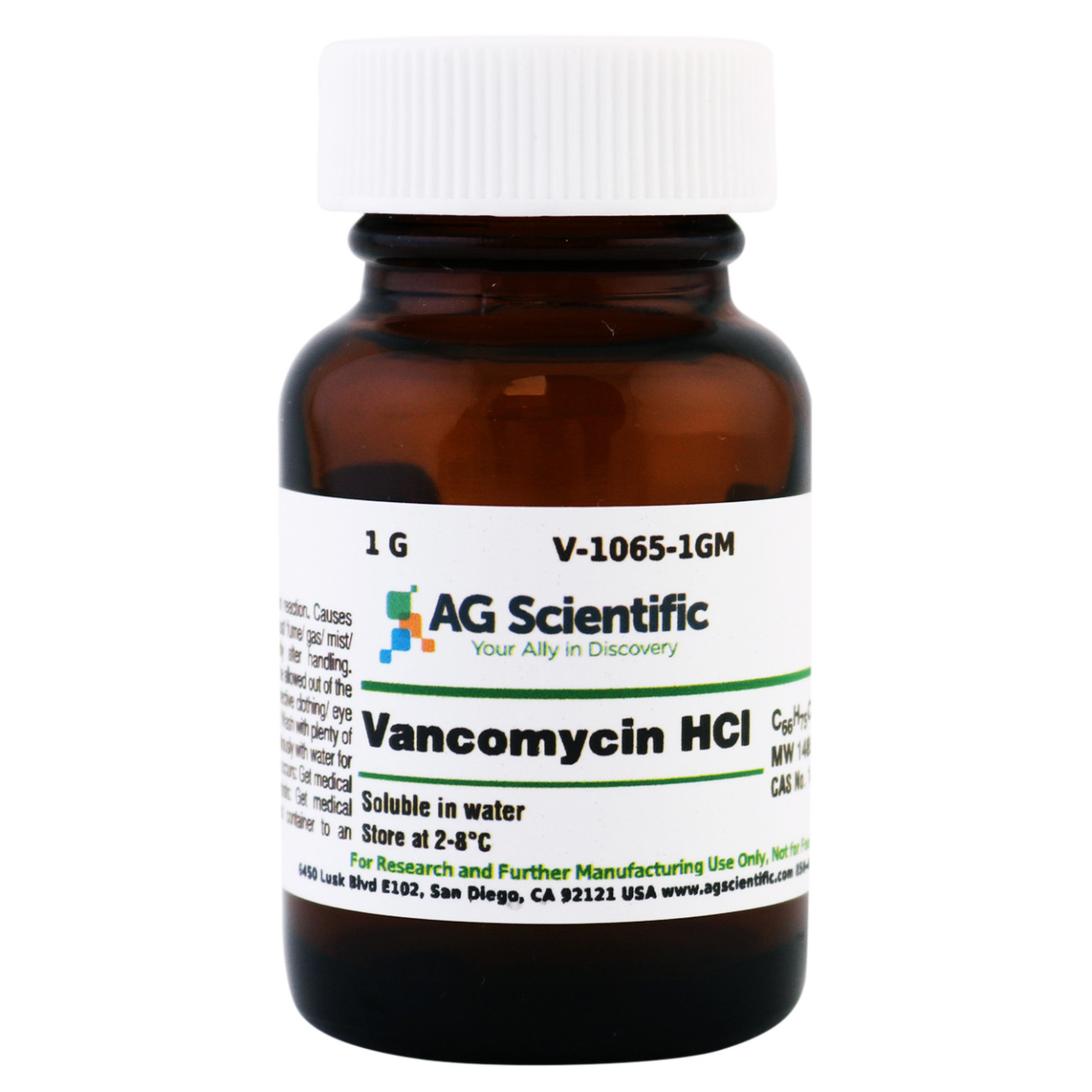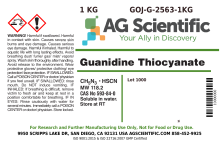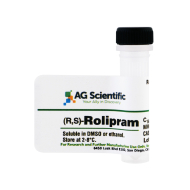Vancomycin hydrochloride; Lyphocin; Vancor ; Vancocin
1404-93-9
1485.7
C66H75Cl2N9O24 • HCl
Water
2-8°C
Vancomycin HCl is a glycopeptide antibiotic that inhibits the growth of gram-positive microorganisms, such as MRSA (methicillin-resistant Staphylococcus aureus). It is isolated from Streptomyces orientalis and was first discovered within a soil sample found in Borneo in 1953.
Vancomycin hydrochloride interferes with microbial cell wall synthesis by inhibiting the incorporation of terminal D-alanyl-D-alanine moieties of the NAM/NAG-peptides. Vancomycin is often used with cefotaxime or carbenicillin to produce a wide spectrum of activity against both Gram-positive and Gram-negative bacteria.
Vancomycin HCl is commonly used in concentrations in the range of 50-100 μg/ml. Potency: >1,000 μg per mg.
Applications:
- Treatment of severe infections caused by strains of methicillin-resistant (β-lactam-resistant) staphylococci.
- Blocks bacterial cell wall synthesis
- Studies involving cancer patients
- Studies on antibiotic resistance
- Nanoparticle transport studies
0.1 lbs
Research or further manufacturing use only, not for food or drug use.








